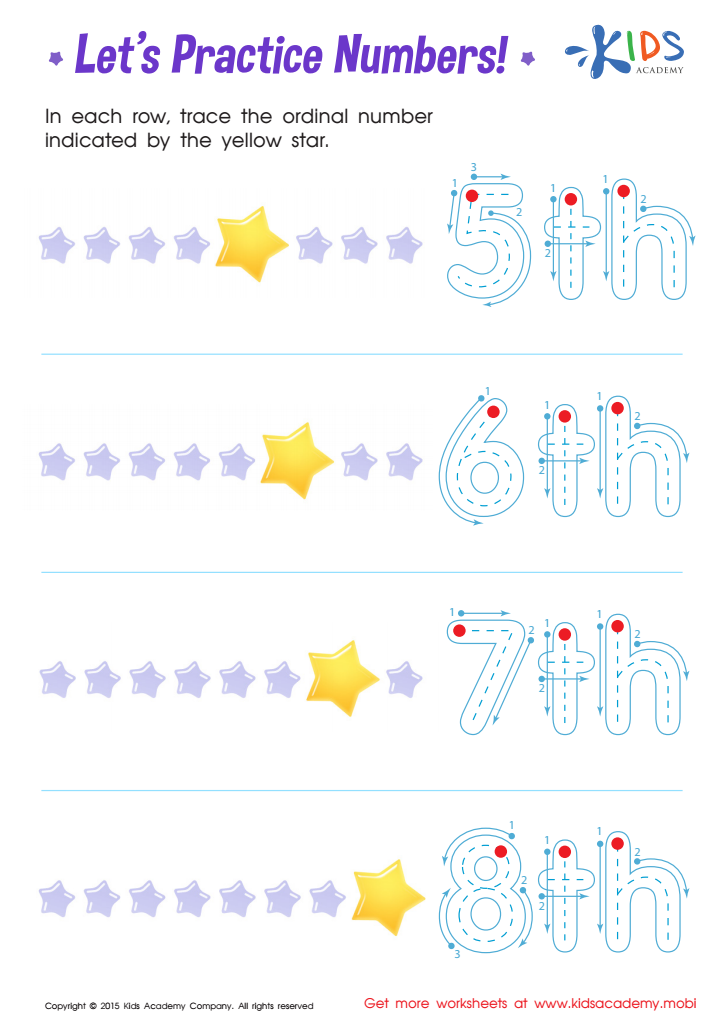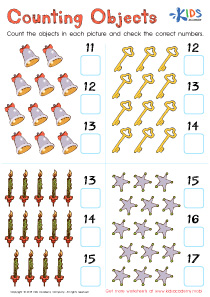Fine Motor Skills Normal Tracing Numbers Worksheets for Ages 3-6
6 filtered results
-
From - To
Explore our "Fine Motor Skills Normal Tracing Numbers Worksheets" designed specifically for children ages 3-6. These engaging worksheets motivate young learners to trace numbers, enhancing their fine motor skills and hand-eye coordination. Each worksheet provides a fun and interactive way for children to practice number formation while building confidence in their writing abilities. Perfect for home or classroom use, these resources cater to developing essential skills through enjoyable activities. Let your child embark on an exciting learning journey with our thoughtfully designed worksheets that make mastering numbers an enjoyable adventure. Download and watch your little one flourish as they trace and learn!
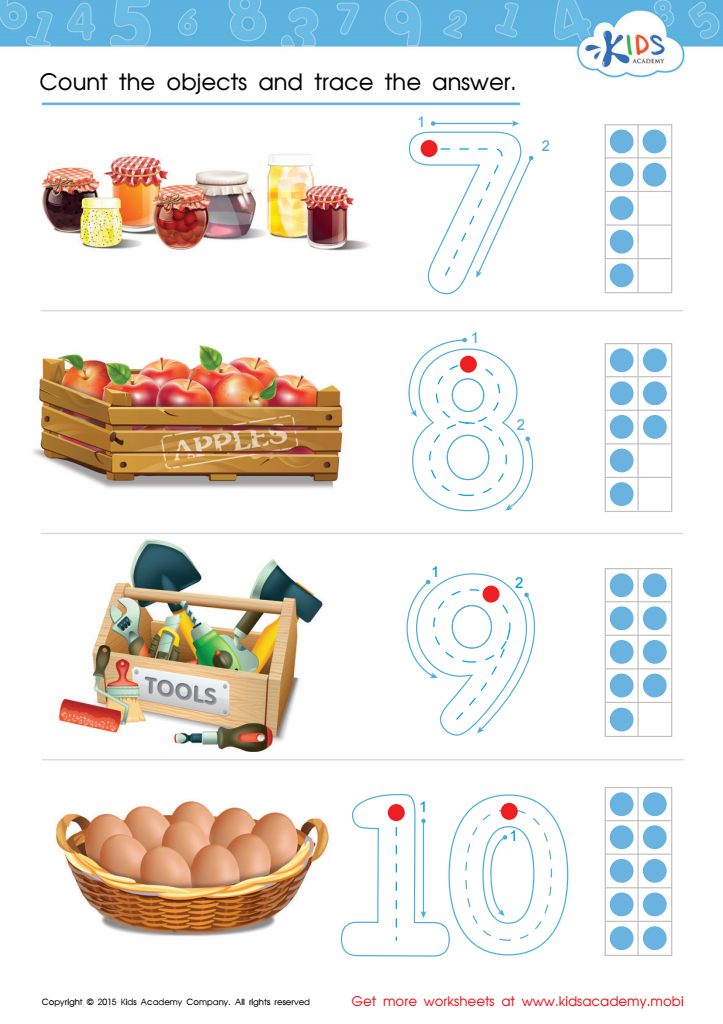

Count and Trace 7 – 10 Worksheet
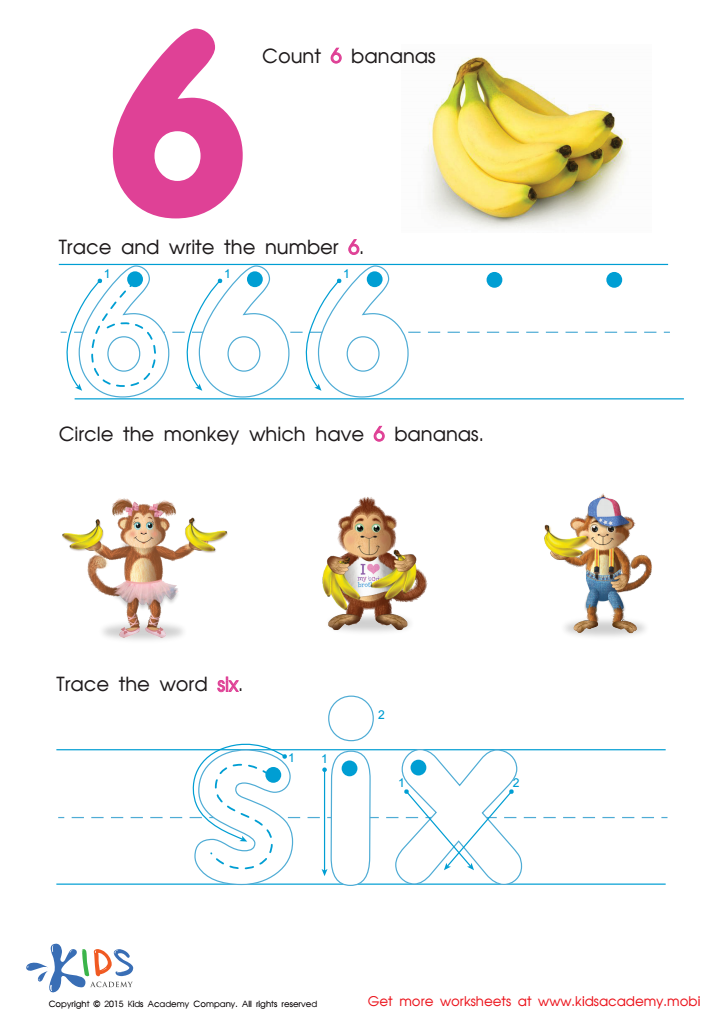

Tracing And Writing Number 6 Worksheet
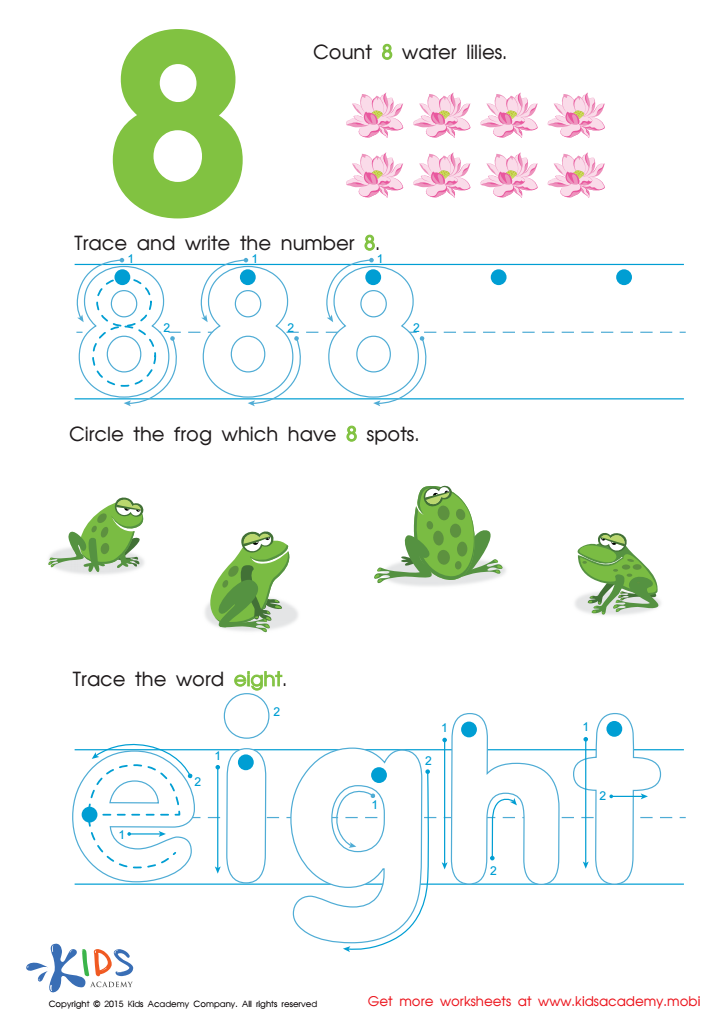

Learn Number 8 Easily Worksheet
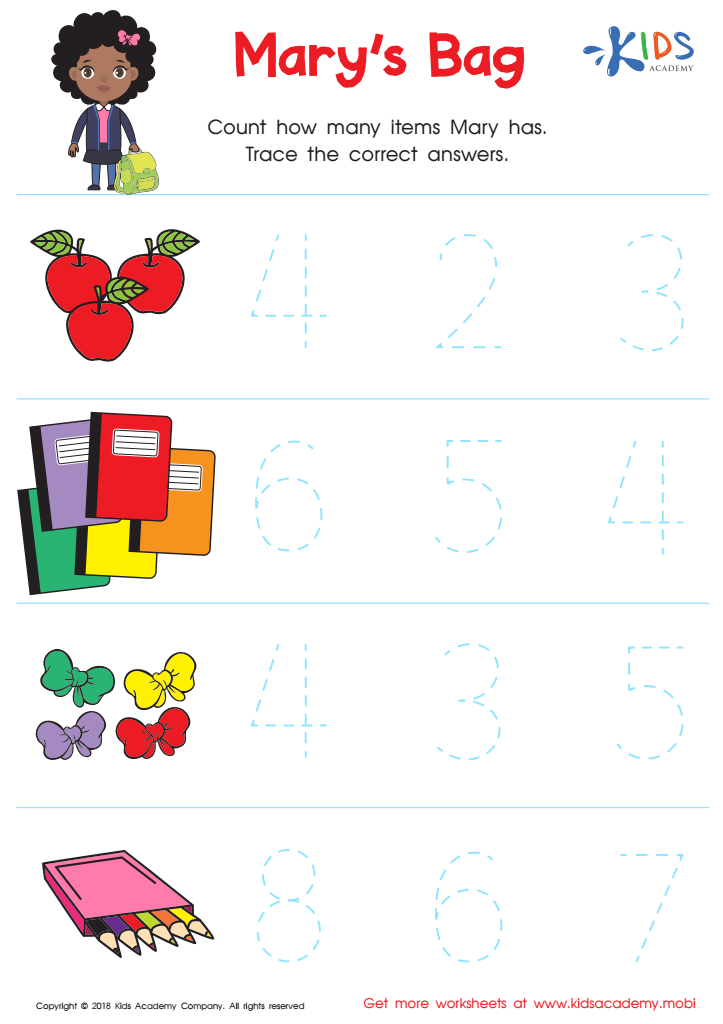

Kindergarten Number Tracing: Mary's Bag Worksheet
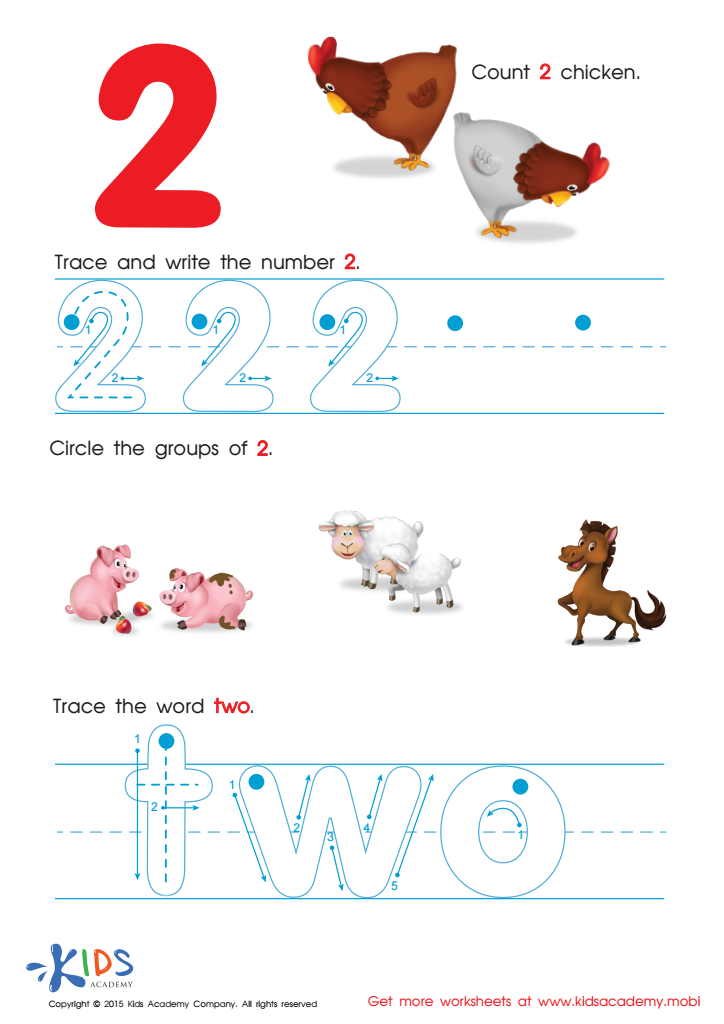

Learn to Write the Number 2 Worksheet
Fine motor skills are crucial for young children's overall development, particularly during the ages of 3 to 6. This is a critical period where children hone their dexterity through activities like tracing numbers. Engaging in such tasks not only aids in practicing handwriting but also enhances hand-eye coordination and finger strength. Parents and teachers should care about these skills because they serve as the foundation for more complex tasks later in life, such as writing, drawing, and self-care routines.
Developing fine motor skills can also boost cognitive flexibility and problem-solving abilities, as children learn to manipulate objects and tools. By tracing numbers, they reinforce their understanding of numerical concepts, laying the groundwork for future math skills. Moreover, these activities can offer a sense of achievement, helping to build a child's confidence and self-esteem.
For parents and teachers, fostering these skills allows for a more enriching learning environment and prepares children for academic readiness. By incorporating fun, engaging tracing activities in day-to-day routines, adults can nurture a child's curiosity and enthusiasm towards learning, ensuring they are well-equipped for future challenges in school and beyond.
 Assign to My Students
Assign to My Students
